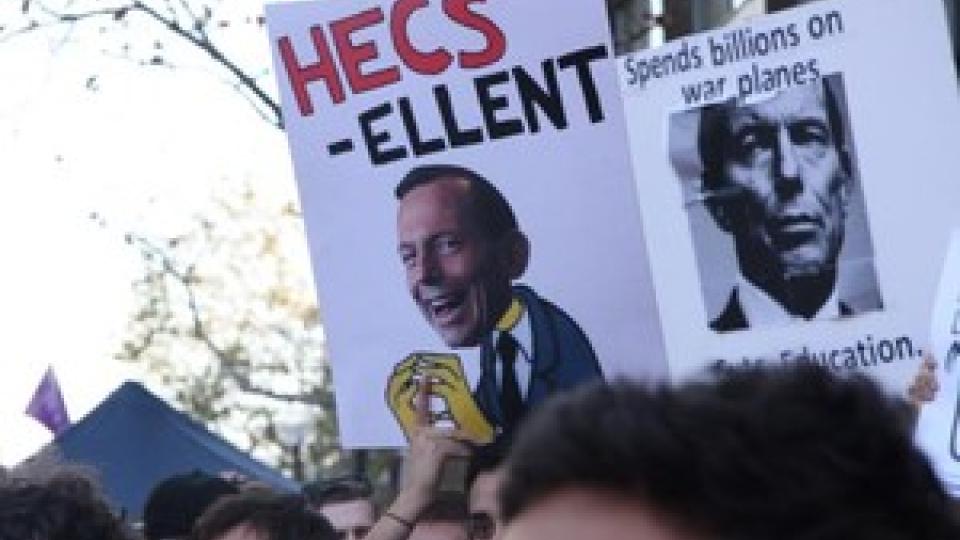Like a zombie that just won’t die: fee deregulation returns

Fee deregulation will be resurrected this year. This gives education activists that general zombie-slayer feeling any sane human gets from fighting a piece of legislation you thought you had killed already. Last year, fee deregulation was booted out of the Senate, with student boots doing most of the kicking. But it doesn’t want to die and is set to return to parliament, presumably with enough amendments to appeal to the biggest fence sitters. That puts most of the Senators (bar certain Labor factions and the Greens) back on the worry list, including the crossbenchers Dio Wang from the Palmer United Party and independents Nick Xenophon and Jacquie Lambie. Student activists have been sharpening their stakes to fight fee deregulation in the lead up to university Orientation Weeks nationwide. That is why Resistance: Young Socialist Alliance thought it would be fitting to start the fight with a Mythbusters: Zombie Edition (which would also make a great video game for all you web developers out there). We will tackle some of the most common myths being spread in the right-wing offensive with good, old-fashioned facts. Here are some of the things someone with more money than you has said about fee deregulation and why they’re not completely accurate. Claim: "We will be able to have a generous package of support for students from disadvantaged backgrounds.” — University of Sydney Vice Chancellor Michael Spence (average annual salary: $900,000. Fee deregulation is a good thing because we can give more money to students from disadvantaged backgrounds by taking money from students from disadvantaged backgrounds. Did you see the logic train? Because Spence missed his stop. The University of Sydney Student Representative Council aims to offer students cheaper rent via housing projects and increase the amount of scholarships for poorer students. However, neither is guaranteed or agreed upon by the university heads and unless Spence plans to implement scholarships for all low socio-economic status students (which he has never said he would do), the majority of students will be worse off. In an ideal world, under Spence’s logic, disadvantaged students would see a bit more money (though that isn’t guaranteed), only for them to enter the real world with debts that, in many cases, are more than they’ll be able to pay off in a lifetime. But it was all worth it for some counselling and cheap rent for three years, huh? Claim: “Thinking afresh about fee flexibility could be an important step to ensuring Australia remains internationally competitive.” — Melbourne University Vice Chancellor Glyn Davis (average annual salary: $1 million) Once again, there is a speck of truth to this claim. Fee deregulation could potentially allow universities to funnel money into research. Research is generally the main indicator on an international university ranking scale. Funneling money into research would increase Australia’s international competitiveness. But there is no guarantee that universities would use fee deregulation to put money into research. The only real conclusion is that if Davis really wanted more competitive universities in Australia, they’d be lobbying the government for research money, not placing the burden on students to pay for it. If students want their interests to be represented, there is no choice but to collectivise and fight back. We’ve already had some wins over the past year in conjunction with the Education Action Network and respective campus Education Action Groups, and little wins like the one we recently saw in the Senate are heartening. Resistance: Young Socialist Alliance will enter O Week preparations with that in mind. So, look out for us on your campus.